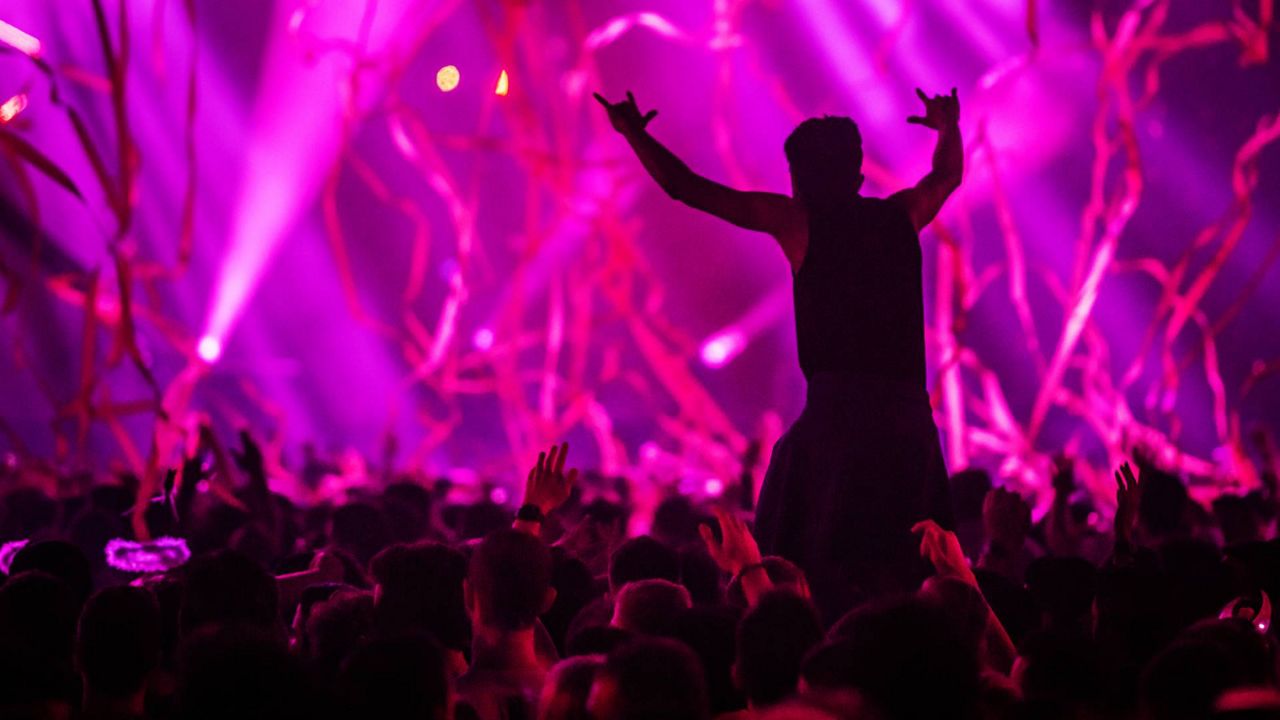LAS VEGAS — It’s been almost a year since we could go to movies, see live concerts, and watch sports from the sidelines, but as vaccinations ramp up, so are hopes that in-person events of the before times could be back in action. The question is how to do it safely.
“There are a number of tools that are going to be required as we look to reopening large-scale gatherings and events again,” said Jim Digby, president and co-founder of the Event Safety Alliance, a non-profit trade association of live event industry professionals.
Many of those tools are likely to involve technology that can monitor a person’s health in real time through biometrics, quizzes, thermal scanning, and other assessments that combine into a sort of ticket that grants access to individuals determined to be COVID free.
“The ideal scenario is to screen individuals as much as possible before they come to that gathering and point of amplification,” said Jim Mault, chief executive of BioIntelliSense, Inc., which makes a wearable device called the BioButton that continuously tracks symptoms associated with COVID.
Speaking during a panel discussion about getting back together safely as part of this week’s Consumer Electronics Show, he said the company has been working with public health officials, as well as the U.S. Department of Defense and U.S. Department of Health and Human Services, to identify ways to screen individuals.
The BioButton is a CES 2021 Best of Innovation Awards honoree.
A COVID test is helpful, but it only represents an individual’s COVID status at that particular moment in time. It doesn’t guarantee that an individual won’t have COVID the next day or in the days after that.
“If you test negative, you probably were not infected at the time your sample was collected,” according to the Centers for Disease Control website. “The test result only means that you did not have COVID-19 at the time of testing.”
The BioIntelliSense BioButton was developed before the pandemic as a medical-grade wearable to monitor individuals after leaving the hospital for things like pneumonia or infections following surgery. Cleared by the U.S. Food and Drug Administration, the BioButton is a coin-sized device that continuously monitors temperature, respiratory rate, and heart rate at rest, while a compatible app called BioMobile conducts daily health screening surveys based on CDC guidelines that indicate if a person is cleared or not cleared for COVID. That notification can then be presented at a venue to grant or deny entrance.
Mault said the device is being used at conferences and for travel programs.
A similar system launched this week for the 2021 season of the Orlando Magic basketball team, which now requires fans to complete a symptom and exposure survey before arriving at a game using an app called Clear. After taking the survey within 12 hours of game time, fans who are cleared of COVID symptoms are issued a digital health pass that is presented as a green light once unlocked with a QR code and a face scan.
“There’s a new level of health and wellness as a part of someone’s identity,” said Caryn Seidman-Becker, chief executive of Clear.
The company, which uses a system of biometrics and questionnaires to confirm a person’s identity and health status, is certified by the Department of Homeland Security. Clear, like the BioButton, encrypts the personal health information it collects and vests the ability to share that information with the user.
“Users are always in control of their data,” Seidman-Becker said. “It’s always opt in. You don’t need to share that data,” she said, adding that the only thing the recipient sees is a green light on a screen.
She added that the use of biometric technology to clear individuals based on their COVID status is necessary for the hybrid world in which we are currently living, where some people have been vaccinated but others haven’t.
“There will be global rules, state rules, local rules. Health insights are a part of who you are. What this is really doing is saying this is a digital part of our lives, and we may want to know certain things at certain times. It’s just part of who we are,” she said.
Seidman-Becker likened the system to a school requiring a child’s vaccination status before allowing him to be enrolled, or a country requiring a visa before granting access to a foreigner.
“This is a new paradigm,” Mault said. “The vaccine is a great reason for us to all be optimistic, but this is going to take time. It’s not like flipping a switch.”
Many health experts expect that herd immunity, or the point at which most of a population is immune to a disease, will not be reached until the vaccination rate is 70%. That may not happen until next year.
To help the many live event businesses survive until that happens is a matter of managing the risk of COVID infection with established best practices, such as mask wearing, social distancing, and hand washing, and to compliment those behaviors with real-time monitoring.
“One of our principal sectors is that most dangerous sector: live gatherings around music, where there’s singing in close contact, and artists expelling on stage,” Digby said. “All the nuances around this disease are at a heightened risk inside the environment we’re addressing. It’s going to be some time where we’re anywhere close to the numbers and capacities we saw pre-COVID, and we have to continue to find models that work.”
But once we get there, Digby said, “It’s going to be one heck of a party.”



